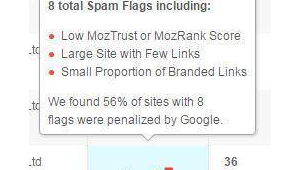黑帽seo工具网
黑帽seo排名软件-黑帽seo程序论坛

当前位置:首页 » SEO优化文章 » 正文
Google has long been a dominant force in the digital landscape, especially when it comes to the world of English-language websites. Its search engine is the go-to tool for millions around the globe seeking information, products, and services. English-language websites, in turn, rely heavily on Google's algorithms to gain visibility and attract traffic.

Google's influence on English-language websites is far-reaching. It sets the standards for search rankings, dictating which sites appear at the top of search results pages. This has led to a highly competitive environment, where website owners strive to optimize their content and technical aspects to please Google's algorithms. For example, keyword research and placement have become crucial strategies. Website owners spend countless hours identifying the most relevant and popular keywords in their niches, integrating them seamlessly into their content without sacrificing readability. This not only helps Google understand the site's topic but also increases the likelihood of users finding the site when searching for those specific terms.
Moreover, Google's updates and algorithm changes can have a significant impact on English-language websites. A minor tweak in the algorithm can cause a site's rankings to plummet or soar. This keeps website owners on their toes, constantly monitoring and adapting their strategies. For instance, when Google introduced the Panda update, which focused on quality content, many low-quality or thin-content websites saw a sharp decline in traffic. On the other hand, sites with valuable, original, and engaging content were rewarded with higher rankings. This forced website owners to invest more in creating high-quality content, whether it's in the form of blog posts, articles, videos, or other media.
English-language website owners also need to pay attention to Google's other services and features. Google My Business, for example, is essential for local businesses with English-language websites. It allows businesses to manage their online presence, including their business information, reviews, and maps listings. This helps local businesses attract customers who are searching for products or services in their area. Additionally, Google Ads can be a powerful tool for driving traffic to English-language websites. By bidding on relevant keywords, businesses can display their ads at the top of search results pages, reaching a wider audience and potentially generating more leads and sales.
In the context of an English-language website, link building remains an important aspect related to Google. Quality backlinks from reputable English-language sites can boost a website's authority in Google's eyes. However, it's crucial to build links naturally and ethically. Buying or spamming for links can lead to penalties from Google, which can be devastating for a website's rankings. Instead, website owners focus on creating valuable content that others will want to link to organically. This could include guest blogging on relevant English-language blogs, participating in industry forums, and sharing expertise through social media.
Another aspect to consider is the user experience on English-language websites in relation to Google. Google takes into account factors such as site speed, mobile-friendliness, and ease of navigation. A slow-loading website is likely to rank lower, as users are more likely to abandon it. Similarly, a website that is not optimized for mobile devices will struggle to attract and retain users, especially considering the increasing use of mobile devices for web browsing. Website owners invest in optimizing their sites for speed, using techniques like compressing images, minifying code, and leveraging content delivery networks. They also ensure that their sites are responsive, adapting seamlessly to different screen sizes and devices.
Furthermore, Google's search results are presented in an English-dominated interface. This means that English-language websites have an advantage in terms of being easily discoverable by a vast majority of users. However, non-English websites also face competition in the English-speaking market. To stand out, they need to not only offer high-quality content in English but also understand the cultural nuances and preferences of English-speaking audiences. This might involve using appropriate language, cultural references, and marketing strategies that resonate with English speakers.
In conclusion, Google plays a pivotal role in the world of English-language websites. Its search engine, algorithms, and various services shape how these websites are discovered, ranked, and interact with users. English-language website owners must stay vigilant, adapt to Google's changes, and focus on providing value to users to thrive in this highly competitive digital ecosystem. Whether it's through optimizing content, building quality links, enhancing user experience, or leveraging Google's tools and features, understanding and leveraging Google's influence is essential for the success of English-language websites.
来源:黑帽工具网(/QQ号:25496334),转载请保留出处和链接!
本文链接:https://www.seozhaopin.com/SEOYHwz/5679.html
本站内容来源于合作伙伴及网络搜集,版权归原作者所有。如有侵犯版权,请立刻和本站联系,我们将在三个工作日内予以改正。
Copyright ©黑帽软件网 All Rights Reserved.
- << 上一篇下一篇 >>百度分享获取地址:http://share.baidu.com/code
微信:heimaowiki
英文站群 google
201 人参与 2025年05月15日 16:48 分类 : SEO优化文章 评论
最近发表
公告
- 包月蜘蛛池出租,强引蜘蛛池
代做蜘蛛池,行业程序定制,排名代做